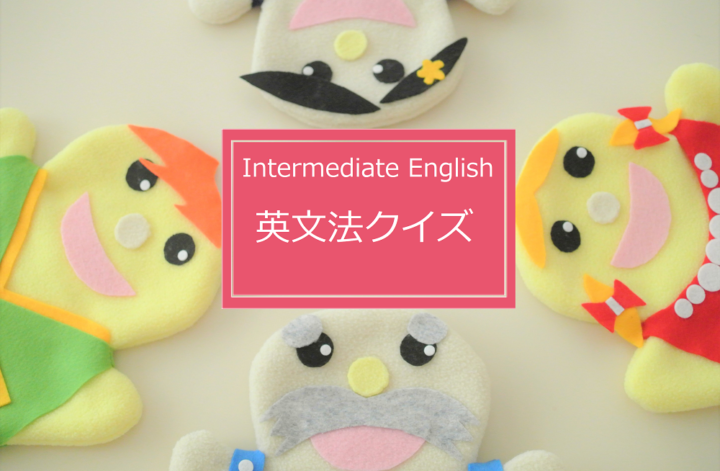次の文を英語にしてください。ただし、getを使うこと。 1. 私はそのバスに乗りました。2. 私はその電車を降りました。3. […]
INTERMEDIATE ENGLISH
Posted on:
方角の表現
次の文を英語にしてください。 1. 神戸は兵庫県の南側にあります。2. 神戸は大阪の西にあります。3. 神戸は大阪の約30km […]
INTERMEDIATE ENGLISH
Posted on:
乗り物の前置詞
次の文を前置詞を使って英語にしてください。 1. 私は電車の中に傘を置き忘れた。(leave)2. 私は車の中でラジオを聴きま […]
INTERMEDIATE ENGLISH
Posted on:
時を表す前置詞(いついつに)
前置詞が難しいというお悩みをお聞きしました。それでは、練習してみましょう! 次の文の( )にin, on, atのどれかを入れ […]
INTERMEDIATE ENGLISH
Posted on:
believeとbelieve in
次の文を英語にしてください。 1. 私を信じて。2. 私はおばけを信じません。3/ 私は正義を信じています。 答え1. Bel […]
